Gastric Sleeve
What is Gastric Sleeve?
Gastric Sleeve, also known as Sleeve Gastrectomy, is a highly popular surgical operation that downsizes the stomach, often with an attempt to initiate weight loss. The operation, often preferred by obesity and diabetes patients, witnesses the disposal of about 75% of the stomach. When the rest of the stomach is brought back together, the result looks like a sleeve, inspiring the name of the operation.
How is Gastric Sleeve surgery done?
In the operation, the surgeon interjects a laparoscope through slits in the belly, often referred to as keyhole surgery, to have a view of the stomach inside. The same method is used in inserting other medical devices within the belly as well, which are used in removing a large part of the stomach. At the end of the operation, the rest of the stomach is being rejoined by the surgeon in the shape of a sleeve. Throughout the surgery, the patient is under the influence of a general anesthetic.
Losing weight with Gastric Sleeve
Gastric Sleeve surgery limits one’s ability and appetite to eat food by not only reducing the capacity of the stomach remarkably but also removing the critical part of the stomach that produces hormones craving food. Even though the patient is still able to eat most food after the operation, he/she has to eat in smaller sizes since there is not enough space left for much food within the stomach.
The reasons for having Gastric Sleeve
Anyone with a Body Mass Index (BMI) above 35 who is suffering from notable obesity, but also other diseases including diabetes, sleep apnea, and hypertension, can have Gastric Sleeve surgery.
Gastric Sleeve surgery not only enables individuals to lose weight, but also diminishes the fatal risks of multiple diseases which are often linked to obesity, such as high blood pressure, cancer, high cholesterol, and heart disease. Even infertility - which is not a fatal disease by no means but a situation that people with obesity often suffer from - can be overcome through a Gastric Sleeve operation.
Naturally, many people apply to Gastric Sleeve operation both to lose weight, and to get rid of multiple other diseases that are usually life-threatening.
Before the Gastric Sleeve operation
Similar to most surgical operations, Gastric Sleeve surgery also requires patients to meet some criteria before the operation takes place. The patients usually get a personalized diet that is mandatory to follow two weeks before the date of the operation. The diet attempts to increase protein consumption, as well as fluids while diminishing carbohydrate intakes to decrease the calories.
After the Gastric Sleeve operation
The post-Gastric Sleeve operation period also requires the patients to follow a customized pattern of behaviors and diet. The patients usually stay in the hospital for a couple of days after the operation. In this process, the patients drink sugar-free liquids. Only after checking out of the hospital, the patients can eat, once again, sugar-free foods and protein shakes.
Following the hospital era, it takes about a few weeks for the cuts on the belly to heal. The overall stomach, however, recovers only after 6-8 weeks. In this process, the patients should not carry heavy objects and avoid exercising and heavy work. The patients also should not sleep on the stomach during the recovery process. Instead, they should sleep while sitting, or semi-sitting. The usual food can be consumed a couple of months after the surgery.
The patient’s eating habits are expected to be transformed entirely for the rest of his/her life. The patient has to eat slowly and must avoid drinking while eating. Anything with high calories is especially forbidden as it might trigger weight gain.
Is Gastric Sleeve harmful?
Every surgical operation carries some risks, including Gastric Sleeve surgery. Some of the potential risks of Gastric Sleeve surgery are excessive bleeding, infection, blood clots, and troubles in breathing.
What are the risks of Gastric Sleeve?
The most crucial thing to know about the Gastric Sleeve is the fact that the operation is irreversible. Another point is the operation does not guarantee life-long avoidance of weight gain. Therefore, the patients should be careful at all times to make sure their diet is suitable for a healthy life. Lastly, there might be some occasional leaks and other complications concerning the operation, all of which need to be discussed with the expert doctor.
Frequently Asked Questions
Is Gastric Sleeve done to lose weight?
Yes. Gastric Sleeve operation is known for enabling - usually - more than 50% of the patient’s weight to be lost within about two years after the surgery.
What are the prices of Gastric Sleeve operations?
Please ask us for the current discounted prices.
How painful is gastric sleeve surgery?
Unfortunately, just like many other surgical operations, Gastric Sleeve surgery may cause pain to the patient. Nevertheless, the pain is not permanent. The patient should always apply to his/her doctor to reduce the pain.
How long does gastric sleeve surgery take?
The operation generally takes 1-2 hours to be completed.
Please contact us to get more information on Gastric Sleeve operations within minutes.

 Türkçe
Türkçe